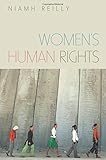Support H-Net | Buy Books Here | Help Support the NBN and NBN en Español on Patreon | Visit New Books Network en Español!
- African Studies
- African American Studies
- American Politics
- American Studies
- American South
- American West
- Asian American Studies
- Australian and New Zealand Studies
- British Studies
- Canadian Studies
- Caribbean Studies
- Central Asian Studies
- Chinese Studies
- East Asian Studies
- Eastern European Studies
- European Politics
- French Studies
- German Studies
- Iberian Studies
- India Studies
- Indian Ocean World
- Iranian Studies
- Irish Studies
- Israel Studies
- Italian Studies
- Japanese Studies
- Korean Studies
- Latino Studies
- Latin American Studies
- Mexican Studies
- Middle Eastern Studies
- Native American Studies
- Pacific Studies
- Polish Studies
- Russian and Eurasian Studies
- Southeast Asian Studies
- South Asian Studies
- Turkish Studies
- Ukrainian Studies
- Western European Studies
- World Affairs
- Animal Studies
- Anthropology
- Archaeology
- Business, Management, and Marketing
- Media
- Critical Theory
- Disability Studies
- Drugs, Addiction and Recovery
- Education
- Economics
- Finance
- Geography
- Gender Studies
- Genocide Studies
- Higher Education
- Human Rights
- Journalism
- Language
- Law
- LGBTQ+ Studies
- National Security
- Philanthropy
- Philosophy
- Policing, Incarceration, and Reform
- Political Science
- Politics & Polemics
- Public Policy
- Sex, Sexuality, and Sex Work
- Sociology
- Sound Studies
- Sports
- Urban Studies
- Big Ideas
- Celebration Studies
- Co-Authored
- Cover Story
- Historical Materialism
- History Ex Silo
- Interpretive Political and Social Science
- Invested Investor
- Landscape Architecture
- Late Antiquity
- Mormonism
- NBN Book of the Day
- NBN Seminar
- Postscript: Conversations on Politics and Political Science
- Practical History
- Preparing for Life After Grad School
- Psychology and Climate Change
- Syriac Studies
- The Chair: In The Room at the Fed
- New Books with Miranda Melcher

May 23, 2012
The Gender of Memory
Rural Women and China's Collective Past
Summary
When I teach my course on gender, sexuality, and human rights, my students invariably want to talk about China's one-child policy. They imagine living in a state where the government tells you how many children you can have - and they're horrified.
One thing I learned from reading Gail Hershatter's new book, The Gender of Memory: Rural Women and China's Collective Past (University of California Press, 2011), was that rural women of a generation earlier would have loved to have the state take charge of their fertility. The state was already controlling so much - like how many bushels of grain they had to produce even as they tended to their very large families - why couldn't it do something about how many children they had? Once their children were grown, those same women became proponents of the one-child policy, hoping to spare their daughters the grueling fates they'd endured. Their daughters, needless to say, didn't fully appreciate their efforts.
That's only one of the stories that emerges from this remarkable book. Based on seventy-two oral histories conducted with Hershatter's collaborator, Gao Xiaoxian, The Gender of Memory explores rural women's experience in the transition to Communism. We learn of their harrowing experiences during the preceding era of famine and civil war, and we learn of new opportunities women discovered as activists and model laborers. But we also learn of the crushing burdens of work and the persistence of poverty and hunger. Most of all, we hear voices that are rarely heard. If you want to be reminded of how moving history can be, then read this book.






































































































